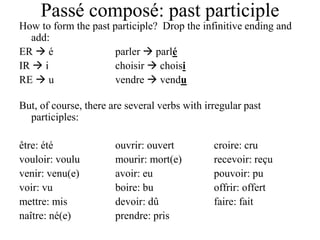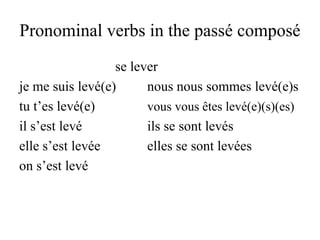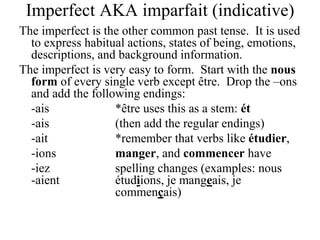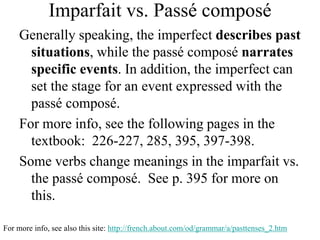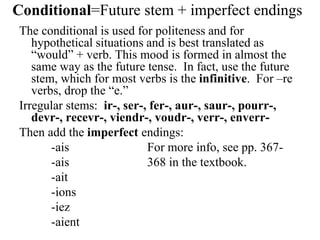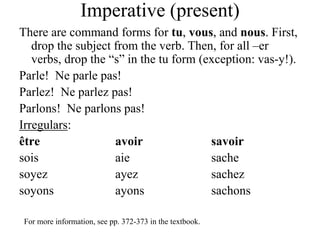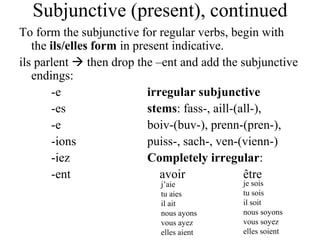This document provides an overview of French verb tenses and moods. It includes definitions and conjugation patterns for the infinitive, present, passé composé, imperfect, future, conditional, imperative, present participle, and present subjunctive. Examples are given for regular and irregular verbs. Links are provided for further explanations of uses for each tense/mood on external websites.

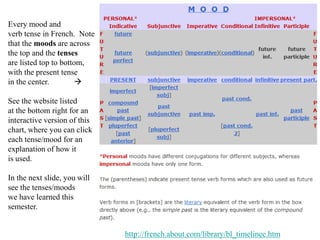
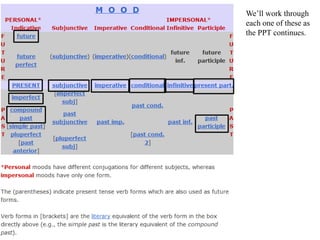
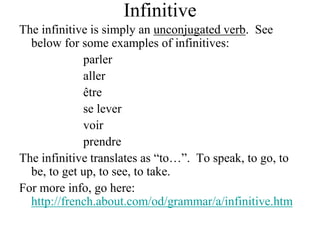
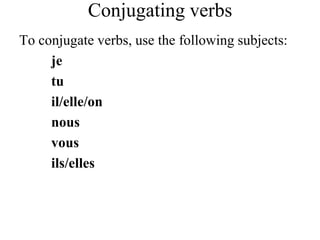


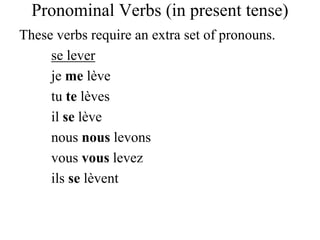
![Present participle
This is a verb form ending in –ant. Start with the “nous” form of the verb in the present tense,
then drop the –ons and add –ant. Three irregulars: étant, ayant, sachant. This verb form
is often used with the preposition en.
• The French present participle can never be used to talk about what someone is doing. The
construction "je suis mangeant" (the literal translation of "I am eating") simply does not
exist in French - you must use the present tense: je mange. To emphasize the ongoing
nature of an activity, you can use the French expression être en train de: je suis en train de
manger - "I'm eating (right now).
• The French present participle cannot be used after another verb. "J'aime lisant"does not
exist; to say "I like reading," you must use the infinitive: j'aime lire.
• The English usage of the present participle as a noun indicating an activity, as in "Seeing is
believing," is another case in which the French translation requires the infinitive: Voir,
c'est croire. Sometimes you can just use a noun; to translate "Reading is fun," you have
two options: Lire est un plaisir, La lecture est un plaisir.
• As a verb or gerund, the present participle is invariable, except in the case of pronominal
verbs, which keep the appropriate reflexive pronoun in front of the present participle: me
coiffant (doing my hair), en nous levant (upon [us] getting up), etc.
For more information, see this website:
http://french.about.com/od/grammar/a/presentparticiple.htm](https://image.slidesharecdn.com/fr-106-french-verb-review-220823035022-1466900f/85/fr-106-french-verb-review-ppt-9-320.jpg)
